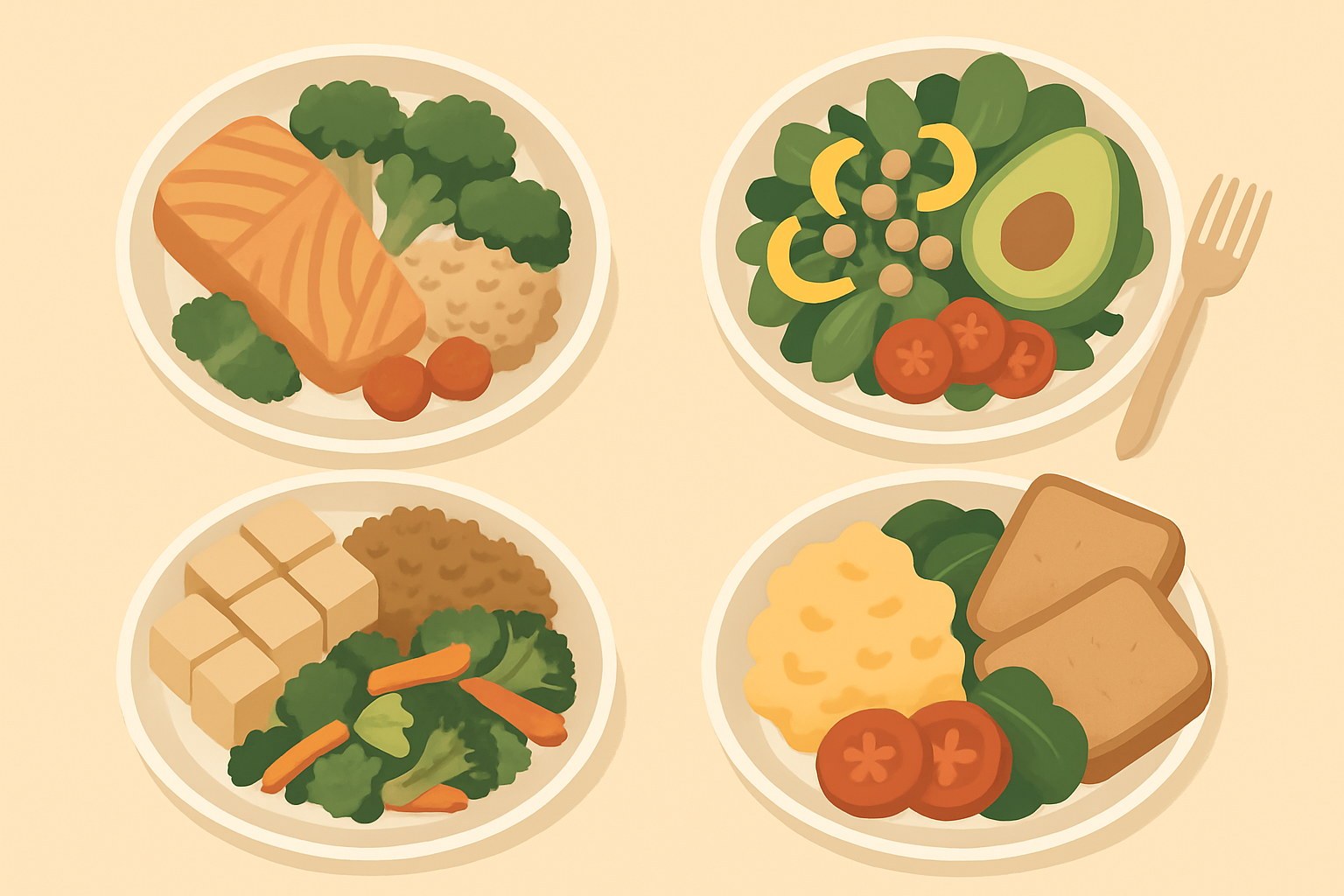
Understanding What Makes a Diet Effective
When considering weight loss, it’s essential to understand how different diets work and why they might be effective. It's not just about cutting calories but finding a balanced approach that is sustainable for you.
- Caloric Deficit: A fundamental concept in weight loss is consuming fewer calories than you burn.
- Nutrient Density: Choosing foods rich in nutrients but low in calories keeps you full and healthy.
- Behavioral Adaptation: A diet that fits with your lifestyle and can be maintained long-term is key.
- Metabolic Adjustments: Understanding how your metabolism adapts is crucial when evaluating diet effectiveness 1.
Common Types of Weight Loss Diets
There are several popular diets each claiming to be the best for weight loss. Here are a few common ones you might encounter.
- Low-Carb Diets: These diets focus on reducing carbohydrate intake and often emphasize protein and healthy fats.
- Mediterranean Diet: Rich in fruits, vegetables, whole grains, and healthy fats, renowned for heart health and weight loss.
- Intermittent Fasting: Instead of restricting foods, this method involves designated eating and fasting periods.
- Plant-Based Diets: Emphasize plant foods and can help with weight loss when balanced and varied.
Choosing the Right Diet for You
Selecting the right diet involves understanding your personal preferences, health needs, and lifestyle. A one-size-fits-all approach is seldom the answer.
- Health conditions: Some diets may be more appropriate depending on specific health issues.
- Personal Preferences: Enjoying the food you eat increases the likelihood of sticking to the plan.
- Trial & Error: Experimenting with different diets can help find which works best for you.
- Logistical Considerations: Consider how a diet fits into your daily life and food accessibility.
For more insights on how to personalize your eating habits, check out our post on choosing your eating style.
Understanding Why Most Diets Fail
Many diets may not work long-term due to a variety of reasons that you can identify and address effectively.
- Unrealistic Expectations: Quick fixes are often not sustainable.
- Over-restriction: Eliminating favorite foods completely can lead to binge eating.
- Lack of Flexibility: Being able to adapt when life gets in the way is crucial.
- Low Sustainability: A diet should promote a balance between health and enjoyment.
Dive deeper into the pitfalls of diet plans and strategies for success in our guide about why most diets fail.
The Concept of Flexible Dieting
Flexible dieting is an approach that allows you to eat a variety of foods without feeling deprived, focusing on balance and moderation.
- Balance: Allows you to indulge in small treats while maintaining calorie controls.
- Moderation: Focuses on portion control rather than food restriction.
- Variety: Encourages diversified food choices to improve adherence.
- Personalization: Can be adjusted according to individual goals and preferences.
Learn how you can eat what you love and still lose weight, by checking our detailed guide on flexible dieting.
Frequently Asked Questions
What diet is the most effective for weight loss?
The most effective diet is often one that you can follow consistently, aligns with your health needs, and incorporates a caloric deficit while providing adequate nutrients.
How do I know which diet is right for me?
Consider your personal health conditions, taste preferences, and lifestyle patterns. Our post on choosing your eating style can offer guidance.
Why do most diets fail?
Diets can fail due to unrealistic goals, over-restriction, and lack of flexibility. Explore why most diets fail for more insights.